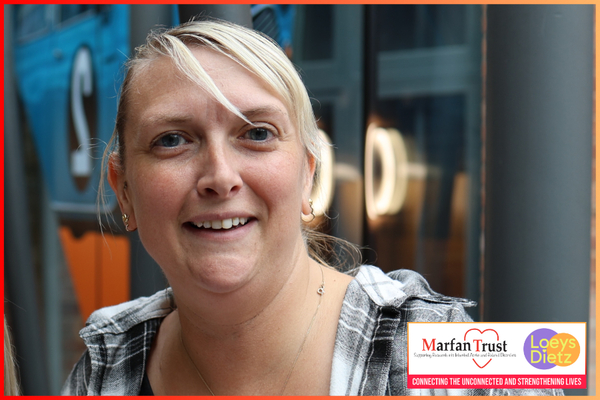Living with Marfan syndrome can create challenges but also confer unexpected advantages, as Millie describes in her wonderful story of dodging cross-country runs and excelling at netball in school, and managing fatigue to flourish at university.
My Marfan syndrome hasn’t affected my life too much to date as I am mildly affected at the moment. Growing up I sometimes thought it was a good thing as I didn’t have to do cross country running at school. When all my friends were complaining, I was allowed to sit in the library.
My mum has Marfan syndrome and I remember being very young (around 5 years old) and having a blood test to see if I had it too. My older brother (who doesn’t have Marfan syndrome) and I were both tested. I can’t remember being told that the result was positive and the only reason I felt different during primary school was because I was very tall and much taller than all my friends. I have never told my friends I have Marfan syndrome because I worry that they will look it up on the internet and won’t understand that everyone is affected differently. I tend to just tell people I have a heart condition and take medication for it (I take Bisoprolol to protect my heart from stretching).
I have yearly check-ups with an echo and don’t mind going to these appointments. The worst thing about having my medical check-ups is when I have to do an exercise test. They push me to my limits on a treadmill and it’s really hard. My mum and I have a joke about which one of us will get the dreaded exercise test letter. She hates them as much as I do.
My Marfan syndrome was definitely an advantage when I was playing netball at school. The opposition used to groan when they saw me as the goal shooter! The goal keeper would sometimes come up to my chest height and would have to do a lot of jumping. My favourite memory is the time the opposition’s coach asked if I could be taken off the court because I was scoring too many goals. The score was 38 – 2 by that point! It helped give me confidence and to see my height as a good thing.
I have just finished my first year at The University of Bath which has highlighted the fact that I get much more tired than my peers. I survived freshers week but quickly realised that clubbing and staying out very late was going to be too much for me. I have learnt that I need to look after myself and make sure that I get enough sleep. I also realised that there are other ways to be sociable at uni such as joining different societies (I tried crochet, salsa and yoga and had a great time). Pacing myself meant that I was able to make it to my 9am lectures! I have also learnt that I don’t feel good on an typical student’s diet and I try to make an effort to eat well and stay hydrated. That doesn’t mean I don’t have the occasional cheesy chips and plain pasta!
I’m lucky that I have plenty of support from my family and the team at St George’s. My message to other young people with Marfan syndrome going to uni this September would be to try out all the different societies and find a routine that works for you. There can be peer pressure around drinking and staying out late and you need to know your own limits and be comfortable with saying no when you need to.









